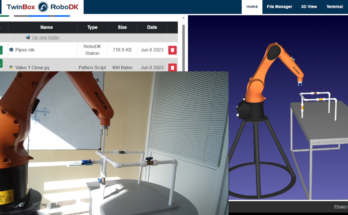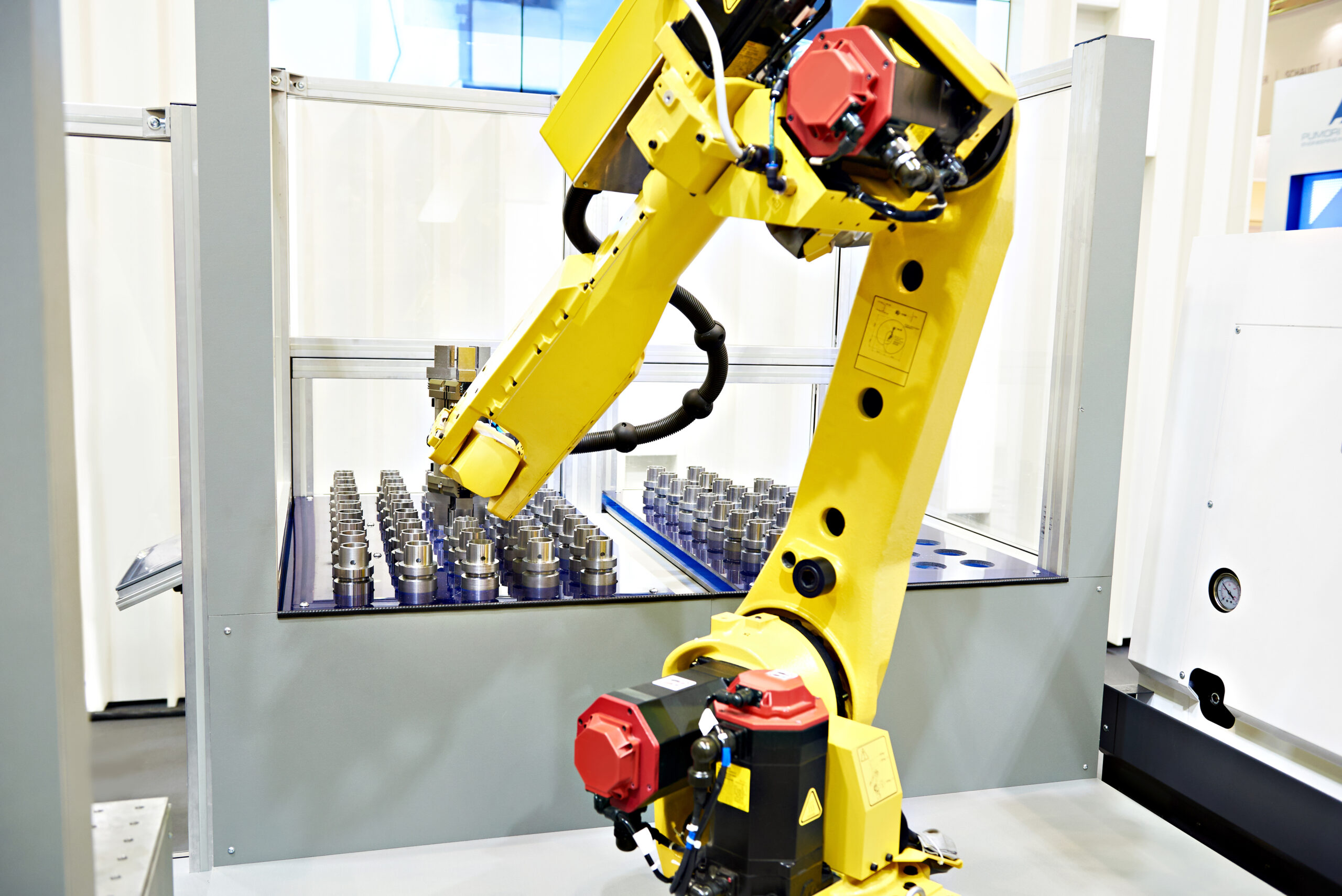It’s time to start learning for the future… and the future is now! Here are 10 core skills that you’ll need to succeed with robotics in 2020.
Approximately 4 years ago — in January 2016 to be exact — the World Economic Forum (WEF) released a list of the “Top 10 Skills You Need to Thrive by 2020.” It identified the core skills that would be necessary for someone to thrive in the fourth industrial revolution.
Back then, the year 2020 was still very much in the future… but the future is now!
The WEF list contained a diversity of skills, including many relating to the more human aspects of business, like emotional intelligence, people management, leadership, etc. But, there are also 3 skills that very much relate to how we use robots within our business, which are included in the list below.
For many people, robotics is still quite new. It’s not always clear which skills we need to get the most from robots. It’s also not always clear what we need to succeed in the new and changing world of work.
To set you up for a successful 2020, here is our own list of 10 core robotics skills you’ll need to succeed.
1. Complex Problem-Solving
The first robotics-relevant skill from the WEF report was “complex problem-solving.” As engineers, this skill is at the very core of what we do. The success of every engineering project depends on our ability to effectively identify and solve problems.
Robotic cells can be complex to design, build, and operate. But, we can make the problem solving much easier by choosing the right tools, training, and technology for the job.

2. Robotics Savvy
A recent article in Forbes listed “tech-savviness” as a top skill that companies should be looking for in their employees and recruits in 2020. Robotics is one of the technologies that they listed, alongside artificial intelligence and virtual reality.
Being “savvy” in something means that you have practical knowledge in a field, which gives you the ability to make good judgments. You can build your robotics savvy through training as well as with hands-on experience with robots and/or robotic simulations.
3. Programming Mindset
The programming mindset is a special type of problem-solving ability. It doesn’t matter which programming language you use, having the mindset of a programmer will help you to build your robotic solutions quicker and more effectively than if you come to robotics with no previous experience in programming.
Having said that, you don’t need to be a programmer to get started with industrial robots, as we outlined in our article 15 Lesser-Known Facts About Industrial Robot Programming.
4. Systems Thinking
Robotics touches on many aspects of engineering and design, including mechanical engineering, electronics, programming, etc. This will get more complex in 2020 as there are increasingly more components to our systems (Internet of Things, AI, etc). Although you don’t need to be an expert in all of these aspects, it is certainly helpful if you can understand the “bigger picture” of the robotic system.
This requires the skill of “systems thinking” — i.e. being able to appreciate the interactions between the robot, the surrounding processes, and the software and hardware. Having a strong, streamlined workflow can help this a lot.
5. Python Programming
Yes, 2020 seems to be the year of Python programming. This increasingly popular programming language has finally become the top tech skill for the new decade.
According to the recent Udemy Workplace Learning Trends report, Python now ranks Number 1 as the skill that people are most looking to learn in the new year. With the right software, you can program your robot in any language you like, including Python.

6. Efficient Solution Design
With more and more potential components of a robotic system, it is now more important than ever that we can design robotic solutions in an efficient manner. In the past, it was acceptable for a robot integration to take months. These days, many robots can be deployed in a matter of weeks (or even days). There is a real need for people who have the skill to design a robot cell that does not disrupt the other operations or cause unnecessary downtime.
7. Adaptability and Flexibility
The second robotics-relevant skill from the WEF report was “cognitive flexibility.” The recent Forbes article also listed “adaptability and flexibility” as an in-demand skill. With robotics, this means the ability to update the robot cell to respond to changes in your products and your business.
Businesses can no longer afford to sit on their laurels and keep doing exactly what they have always done. Robotics software itself is often inflexible so it’s important to pick software which is adaptable.
8. Artificial Intelligence Basics
Artificial Intelligence (AI) is a huge buzzword at the moment. However, you don’t need to go all out and invest in an entirely automated workflow to get the benefits. If you are using robotics, you can utilize AI tools to reduce the more boring, repetitive parts of the robotics programming process.
There is a recent trend for small AI tools that serve one particular purpose. For example, there are various competitive benefits to using a motion planner which automatically plans the industrial robot’s route around its workspace.
9. Critical Thinking
The third robotics-relevant skill from the WEF report was “critical thinking,” which was also listed as one of the four cornerstone skills that engineers need in the future of work.
This has always been an important skill for engineers but it is increasingly becoming our primary way to stay relevant as human workers. Robots and automation can take over a lot of tasks but they can’t beat us at our critical thinking skills.

10. Ability to Learn New Technologies
Although some robots have a rudimentary ability to learn. I always say that our ability to learn new skills and technologies is the most important aspect of being human.
Some people are reluctant to learn new skills once they have been in a job for a while. This is a mistake. If we want to succeed in 2020 and succeed with robotics, we need to develop an attitude of learning and focus on learning how to use new technologies as necessary.
Which skills do you think will be necessary in 2020? Tell us in the comments below or join the discussion on LinkedIn, Twitter, Facebook, Instagram or in the RoboDK Forum.





Thank you for good information to society
It’s very interesting to see how new technology evolve.
To me our world is growing into more complex tech.
With a complex tech ideas bring sustainable development.